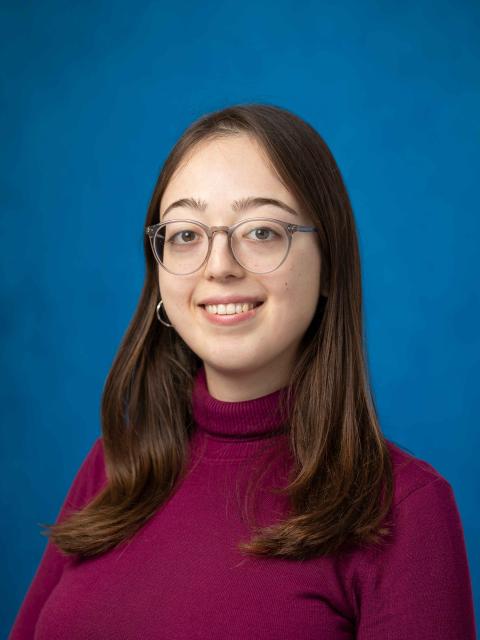PhD student HSRI: Ilayda Özoruç
Our PhD students have the floor

Ilayda Özoruç started her PhD Project "Going Against the Norm: Links Between Personality, Well-Being, and Deviating Family Trajectories in Young Adulthood" (part of Healthy Lifespan) in 2022.
Learn more about Ilayda Özoruç here.
Can you tell us something about you?
Hello, I am İlayda! I am 26 years old and currently live in Tilburg. I studied psychology (bachelor`s degree) at Yasar University (Izmir, Türkiye) and sociology (bachelor`s degree) at Anadolu University (Open and Distance Education System). I continued my education with a research master`s degree at Utrecht University in the program of Development and Socialization in Childhood and Adolescence. I wrote my thesis on “The role of trauma, post-migration living problems and resilient coping in dispositional gratitude trajectories of Syrian origin young adults in the Netherlands”. I realized that I love research and I am passionate about topics that concern individuals and the society. So, I decided to continue my career in academia. I applied for the project "Going Against the Norm: Links between Personality, Well-Being, and Deviating Family Trajectories in Young Adulthood" which was championed by the Herbert Simon Research Institute at Tilburg University. This project was a perfect fit for me because it is a multidisciplinary project that includes three departments namely: developmental psychology, family sociology, and methodology. Finally, I could combine my psychology and sociology background and methodological skills I have been improving through my education, especially during my research master`s degree. I am so glad to be a part of this project!
Did cross-departmental research play a role during your bachelor's/master's studies? To which extent?
During my bachelor’s degree in psychology, I was into topics that are beyond individuals, such as people with refugee backgrounds. The field of psychology approaches this topic with a focus on individual people but I would like to understand the topic also in relation to nations, policies, communities, families, and concepts like gender equality. Then, I decided to study sociology to expand my perspective on the same topic. In my master`s thesis, the topic concerned both disciplines, but the way it is written and the literature used still belong to the psychology framework. Now, I do have the chance to combine these two fields in my PhD project!
What excited you about this multidisciplinary project you applied for?
This project is a combination of what I am passionate about and studied so far. The topic has a societal relevance, especially considering the existence of different forms of families and the decline in birth rate in recent years. The project allows me to approach the topic with a sociological perspective (demographic trends, norms, families, gender issues) and a psychological perspective (personality, well-being, individual development, aging). The involvement of the methodology department challenges me to try new methods and different statistics tools. Moreover, the research team has valuable researchers who bring their expertise and help to the table. In the end, when I got the phone call which they offered me the job, I did not even think a second about it and just said “Yes! I can start right away once I find housing.”
Why is cross-departmental research important for your PhD project? What does it add to the project?
We investigate life-course transitions (e.g., leaving the parental house, having the first job, having a child) in contemporary societies. Theories on personality development have mainly focused on how normative life transitions, such as the transition to parenthood, may lead to personality maturation whereas it did not focus on increased heterogeneity and complexity of family trajectories. While family sociologists have studied the heterogeneity of family trajectories, they have not measured adaptation in terms of personality development. The PhD project brings these neighboring fields closer together and combines their strengths to examine why some people show deviating family trajectories, and how this correlates with development in personality and well-being in young to middle adulthood. Also, with the contribution of the methodology department, we have more opportunities to conduct necessary but a bit complex analyses (e.g., joint latent class model).
What do you like about cross-departmental research?
I am about to start my second year on this project. So far, I have been enjoying reading articles from different fields, thinking outside of the box, trying out new statistics methods, and having discussions with my supervisors where they all have different but very helpful contributions that enrich my point of view. Moreover, the research meetings, conferences, and colloquiums in different departments are always interesting and teaching to me.
Cross-cutting themes
The Herbert Simon Research Institute for Health, Well-being, and Adaptiveness is a research center devoted to carrying out excellent, state of the art research in order to contribute to healthy and resilient people. We have selected three themes, which involve the collaboration between various Departments and address actual themes in need of both fundamental and applied research.
